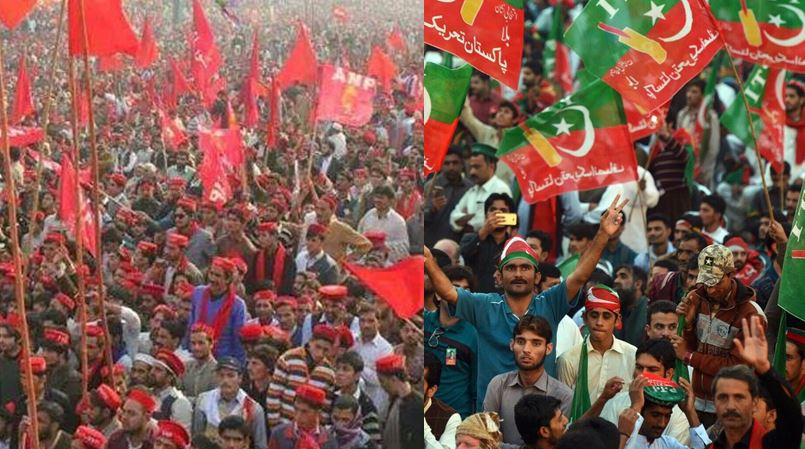Pakistan saw political instability with frequent interventions in its 76 years of history. The country of over 240 million witnessed a severe political crisis marked by financial strain and violence.
Banned Political Parties in Pakistan
Communist Party of Pakistan – 1954
The banning of political parties dates back to Soviet Union. Back in the day, Major-General Akbar Khan, his wife, poet Faiz Ahmed Faiz, numerous military officers, and Sajjad Zaheer, Communist Party’s leaders were held and tried.
Awami League – 1971
President Yahya Khan banned all political activities and imposed press censorship nationwide, declaring the Awami League illegal. He claimed to transfer power to elected representatives when feasible but criticized Sheikh Mujibur Rahman’s movement as treasonous for undermining national security.
Khan tasked the military with restoring order and upholding Pakistan’s integrity amid escalating tensions, particularly in East Pakistan.
National Awami Party (NAP)
National Awami Party (NAP) of Pakistan, founded in 1957, faced bans and persecution under various rulers. Split into factions in 1967, it achieved electoral success in 1970 but was banned by President Yahya Khan in 1971 for alleged involvement in unrest.
Despite bans and leadership arrests under Bhutto’s regime, NAP reemerged as the Awami National Party (ANP) in 1986, continuing to advocate for regional autonomy and democratic principles in Pakistan.
Jeay Sindh Qaumi Mahaz-Arisar (JSQM-A)
Jeay Sindh Qaumi Mahaz (Arisar) or JSQM-A was banned for ties with SindhuDesh Revolutionary Army (SRA) and SindhuDesh Liberation Army (SLA) under the Anti-Terrorism Act of 1997.
Despite claims of political backing by JSQM-A, the groups are deemed by authorities as threats supported by anti-state forces.
Tehreek-e-Labbaik Pakistan (TLP)
Pakistan first banned Tehreek-e-Labbaik (TLP) and later retracted after reaching an agreement with Prime Minister Imran Khan’s government to halt their march.
Pakistan Tehreek-e-Insaf (PTI)
Pakistan’s incumbent government is moving to ban Imran Khan’s Pakistan Tehreek-e-Insaf (PTI) party after a supreme court ruling that recognized PTI as the largest party in parliament.
This move comes amid allegations of violence by Khan’s supporters and accusations related to foreign funding. Despite facing crackdowns, PTI received significant electoral support recently, contesting as independents due to pressure.
Legal cases against Khan, including a conviction overturned for illegal marriage, have been halted. Critics, including the Human Rights Commission of Pakistan, condemn the PTI ban as unconstitutional and harmful to democratic norms. PTI members argue the government’s actions reflect a response to the supreme court’s affirmation of PTI’s parliamentary status.










